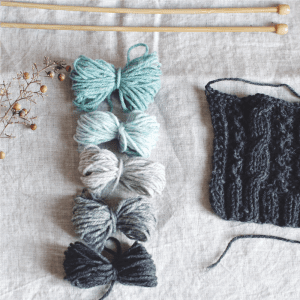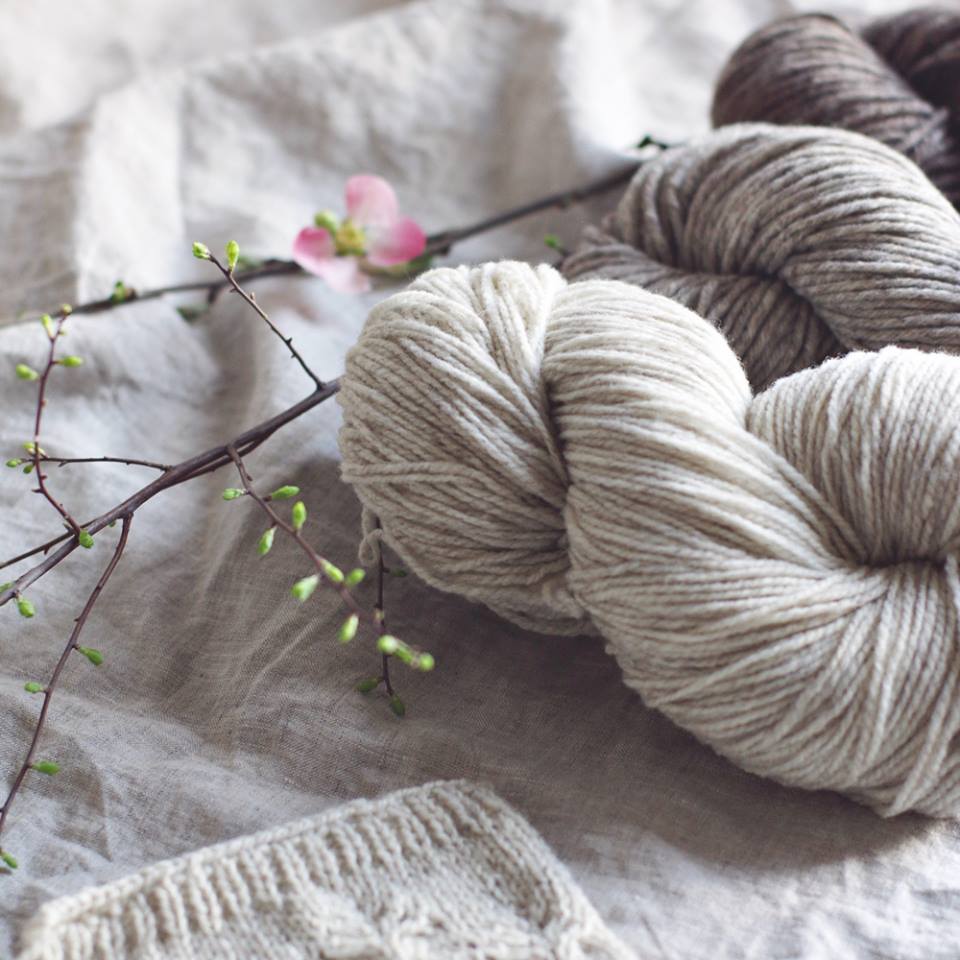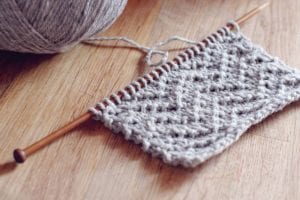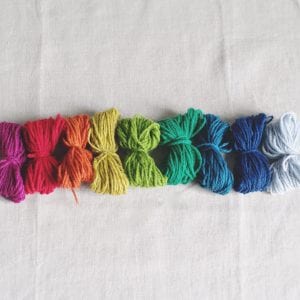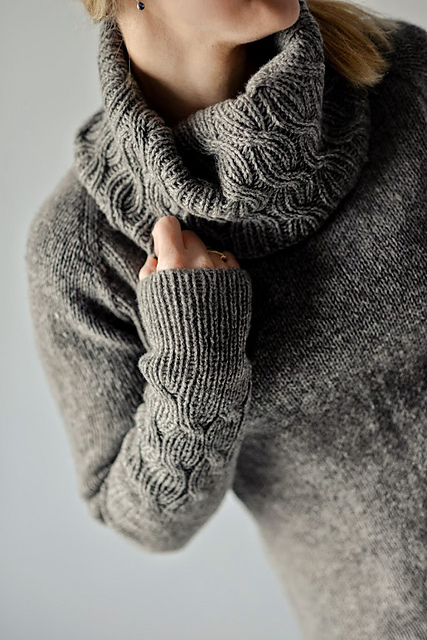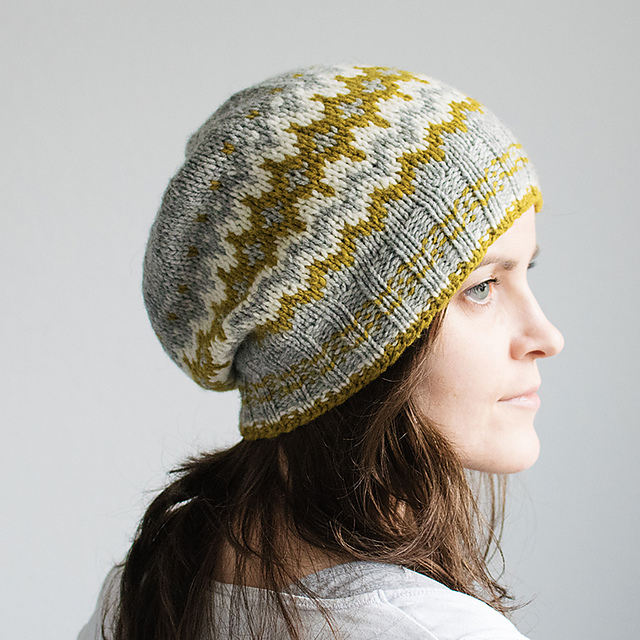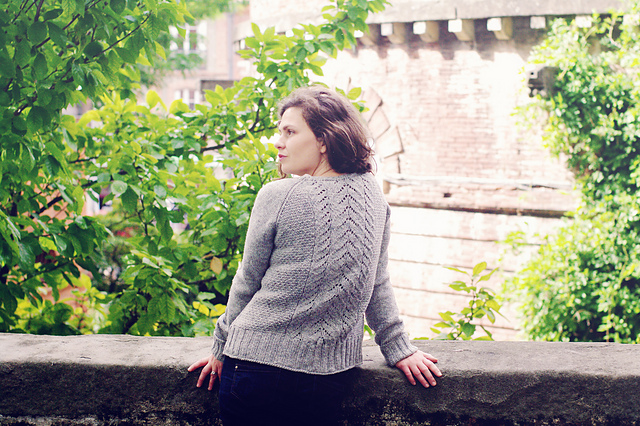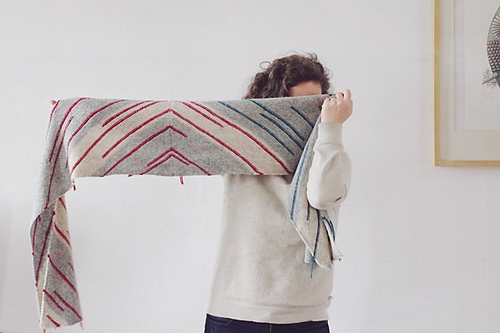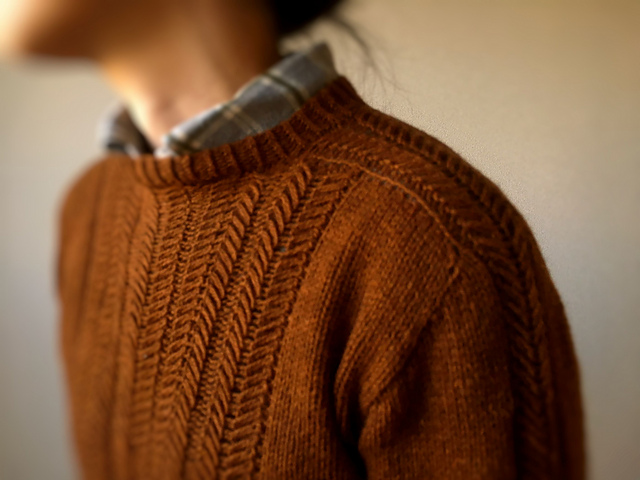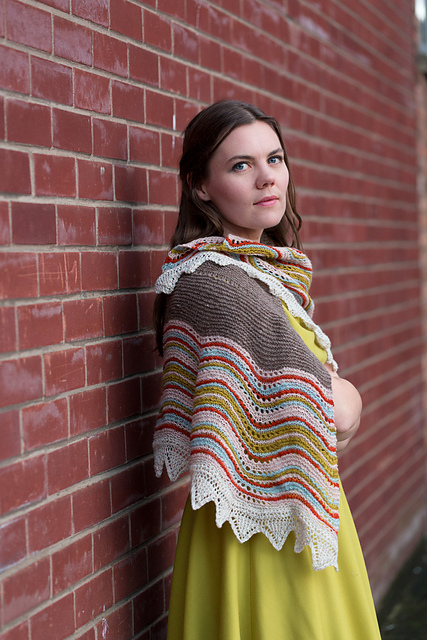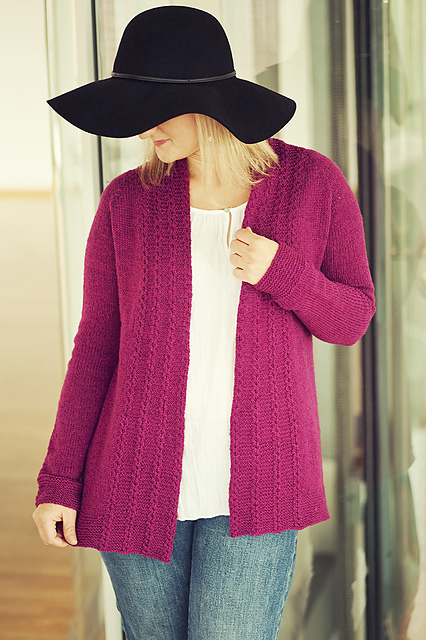I know that over the years I have brought in many hard to find yarns to space. But this one has me perhaps more giddy than any other…
We’ve brought a little taste of Europe here to space by way of De Rerum Natura yarns. The mastermind behind this beautiful line of ecologically friendly yarn is Solenn who lives with her family in Toulouse in the south of France. Solenn made the transition from working with 17th century French literature to the yarn world when she became increasingly frustrated with the transparency of wool and yarn production, worried over everything from the mistreatment of sheep to working conditions and the chemical treatments that went into the production of the yarns she was working with. Driven by this frustration, she went on to found De Rerum Natura which focused on transparently produced, ethically sourced yarns with a minimal ecological footprint.
The merino used to produce De Rerum Natura yarns is even special in its own right. All the flocks are from France and Portugal and spend the majority of their time outside in the fields of Provence, the southern French Alps, and the Aletenjo Valley in Portugal. The majority of the fibre comes from the “merino d’Arles” breed that originated in France in the 19th century. While these sheep produce extremely fine fleece, the animals are small and only produce around 2 kilograms (about 4.5 lbs) of fibre per year, making them that much more special. The remaining fibre comes from the “petra” black merino sheep of Portugal, which adds a lovely heathered finish to the final yarn when the white and black fibres are mixed together.
De Rerum Natura yarns are spun semi-woolen. You may be familiar with the lofty twist of woolen spun yarns like Brooklyn Tweed Shelter or Loft, but this method is not ideal for merino wool. In order to still produce a lofty yarn, Solenn convinced the mill operator in Creuse, France to combine combed and uncombed fibers into the airy finished product. While the yarns look rustic, they still have the softness we all know and love from Merino.
The dyeing process varies from color to color, ultimately creating a beautiful rainbow to choose from. Black and white fibres are mixed together to give the finished yarn a slightly heathered appearance, but these yarns aren’t just limited to the natural shades. Some colors are dyed after spinning, while others begin with dyeing the white wool before spinning. Regardless of the method used, great care is taken to ensure that the dyeing products used are as environmentally friendly as possible with the mill using plants as a natural water recycling system to further reduce environmental impacts.
Our first shipment contains two staple yarns: Gilliatt and Ulysse. The only difference between the yarns is their weight. Solenn recommends handwashing finished items in warm water using a gentle soap to ensure they last for many seasons. Both yarns are perfect for a whole host of projects, ranging from sweaters to cozy accessories perfect for upcoming fall days.
Yarn Details:
Gilliatt:
- Worsted weight
- 273 yards (250 meters) per 100g
- 100% merino
- 17-19 stitches over 4” on a US 6-8 (4-5 mm) needle
- PRICE $16
Ulysse:
- Sport weight
- 202 yards (185 meters) per 50g
- 100% merino
- 22-24 stitches over 4” on a US 2.5-4 (3-3.5 mm) needle
- PRICE $8.50
Pattern Ideas:
-
- Lanvad by Justyna Lorkowska
- Winter’s Fern by Trin-Annelie
- Keera by Isabell Kraemer
- Broken Lines by ANKESTRiCK
- Ryo by Rieko Kuwamura
- Mareel by Ysolda Teague
- Meredith by Justyna Lorkowska
Yarn images courtesy of De Rerum Natura
Save
Save
Save
Save
Save
Save

